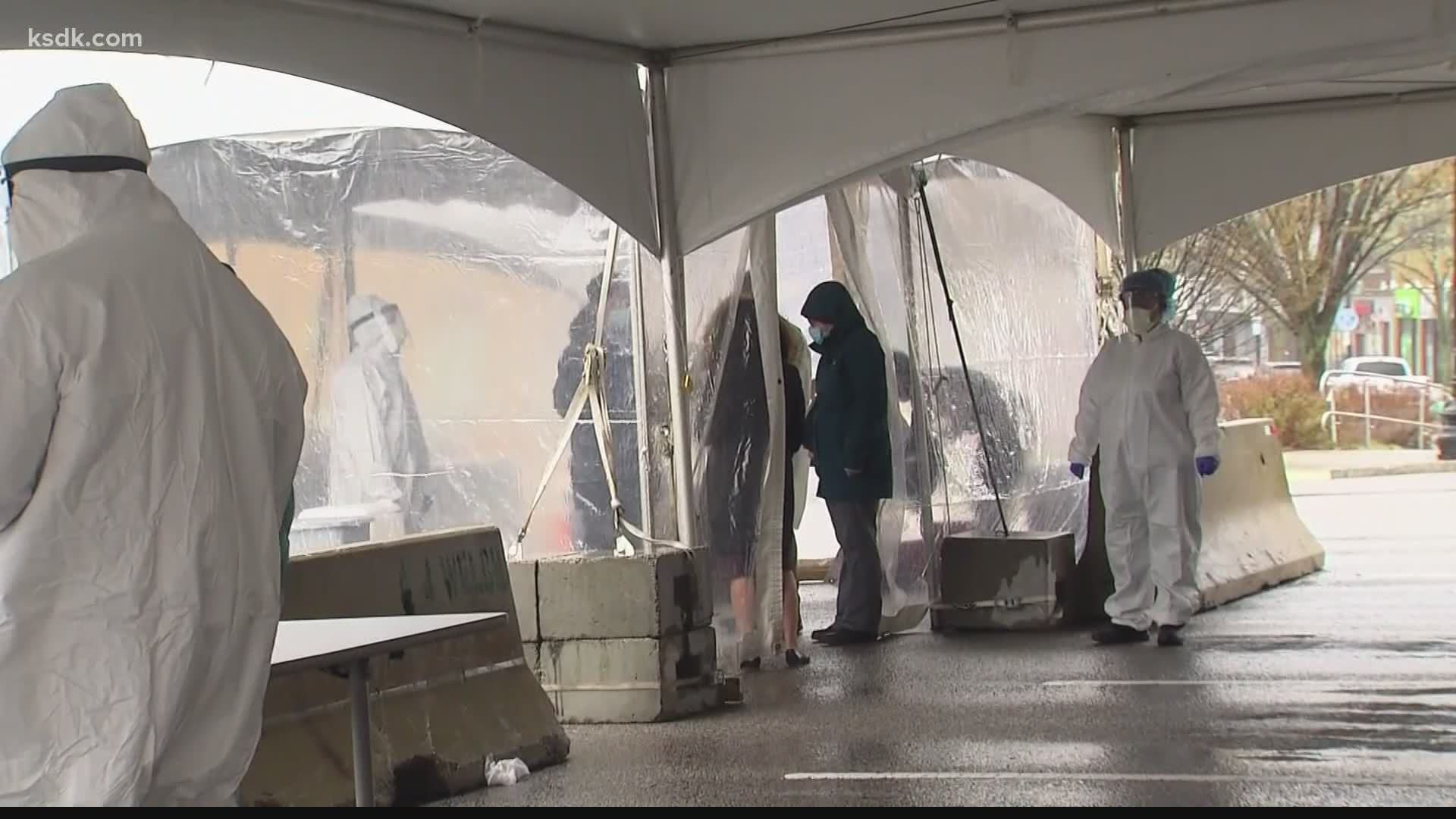ST. LOUIS — Antibody testing is now available at several St. Louis area urgent cares.
An antibody test can detect if you have been previously infected with the coronavirus, causing you to develop antibodies to it.
According to the CDC, depending on when someone was infected and the timing of the test, the test may not find antibodies in someone with a current COVID-19 infection. Antibodies are proteins that help fight off infections. Antibody tests should not be used to diagnose someone as being currently sick with COVID-19.
Total Access Urgent Care, Downtown Urgent Care and Creve Coeur Urgent Care are offering COVID-19 antibody testing.
The price varies for those who are insured and for those who are uninsured.
Total Access Urgent Care has multiple locations in the area, click here to find one | Total Access Urgent Care said its FDA-authorized test is manufactured by Abbott and is over 99% accurate. The test identifies the presence of the IgG antibody. Antibody test results are usually available in 2-3 days. Total Access Urgent Care said by partnering with all major health companies its antibody testing will be processed through insurance. All COVID-19-related visits also include a medical evaluation.
For those who are uninsured: $249 for swab test, $299 for antibody test
Downtown Urgent Care is located at 916 Olive Blvd. in St. Louis | Appointment not needed, can preregister online. Testing typically free if patient prefers to use private insurance, Medicaid or Medicare, or $125 for uninsured
Creve Coeur Urgent Care is located at 13035 Olive Blvd. in Creve Coeur
Our Urgent Care is located at 2893 Veterans Memorial Pkwy. A spokesperson said testing is free to all patients - insured or uninsured, including medicaid.
5 On Your Side’s Abby Llorico talked with Total Access Urgent Care’s Dr. Troy Finkel.
What the test results mean, per CDC
If you test positive
A positive test result shows you have antibodies that likely resulted from an infection with SARS-CoV-2, or possibly a related coronavirus.
It’s unclear if those antibodies can provide protection (immunity) against getting infected again. This means that we do not know at this time if antibodies make you immune to the virus.
If you have no symptoms, you likely do not have an active infection and no additional follow-up is needed.
If you have symptoms and meet other guidelines for testing, you would need another type of test called a nucleic acid test, or viral test. This test uses respiratory samples, such as a swab from inside your nose, to confirm COVID-19. An antibody test cannot tell if you are currently sick with COVID-19.
It’s possible you might test positive for antibodies and you might not have or have ever had symptoms of COVID-19. This is known as having an asymptomatic infection, or an infection without symptoms.
If you test negative
If you test negative for COVID-19 antibodies, you probably did not have a previous infection that has gotten better. However, you could have a current infection. It’s possible you could still get sick if you have been exposed to the virus recently, since antibodies don’t show up for 1 to 3 weeks after infection. This means you could still spread the virus.
Some people may take even longer to develop antibodies, and some people may not develop antibodies.
If you have symptoms and meet other guidelines for testing, you would need another type of test called a nucleic acid test, or viral test. This test uses respiratory samples, such as a swab from inside your nose, to confirm COVID-19. An antibody test cannot tell if you are currently sick with COVID-19.
OTHER STORIES


